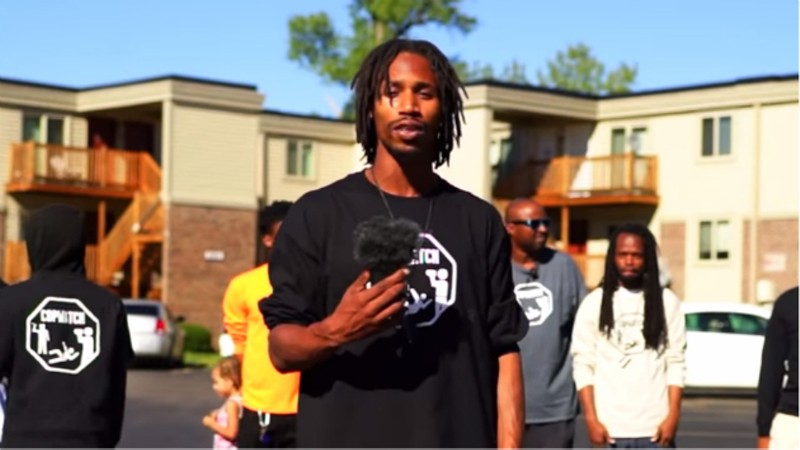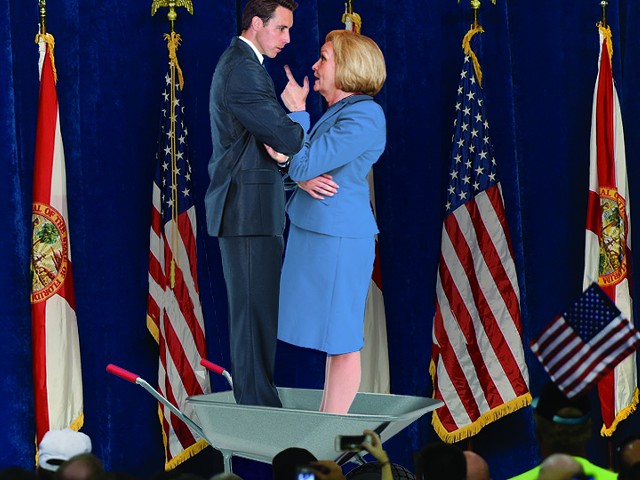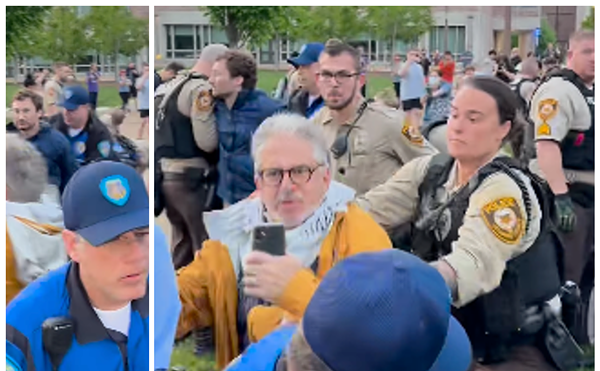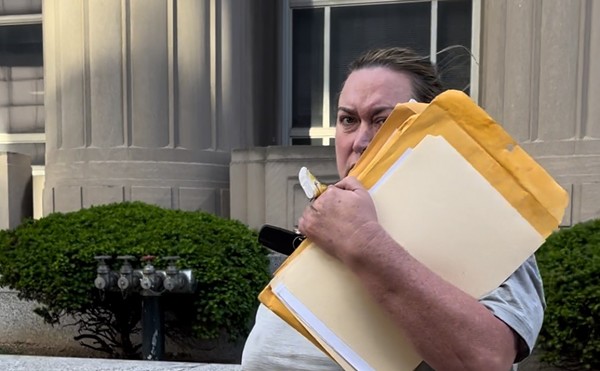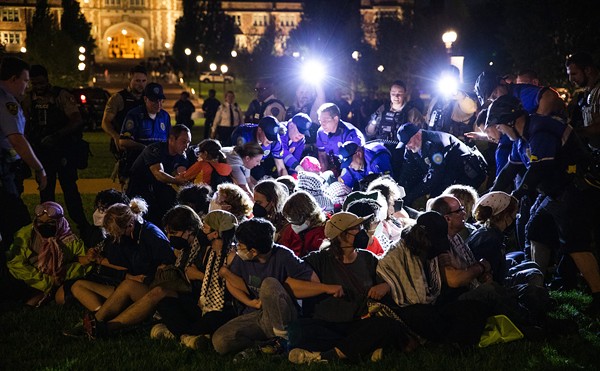St. Louis CopWatch Co-Founder Arrested for Filming Police Files Suit
[
{
"name": "GPT - Leaderboard - Inline - Content",
"component": "41932919",
"insertPoint": "5th",
"startingPoint": "3",
"requiredCountToDisplay": "3",
"maxInsertions": 100
}
]
A police watchdog is suing the city of St. Louis and seven of its cops in federal court, alleging they arrested him and took his camera as punishment for filming them.
David Whitt, 38, was taken into custody in August 2016 in the Academy neighborhood of north city. He says in the suit he was biking along Wells Avenue when he spotted a number of officers. A man, apparently wanted in a car theft investigation, was in the back of a police cruiser.
Whitt did what he always does in those situations: He pointed his camera and started filming. He has been recording officers since shortly after Michael Brown was killed by a Ferguson police officer in 2014. Whitt is a co-founder of a St. Louis chapter of CopWatch, an organization that trains and encourages people to start filming when they say police activity.
He is pretty well known for it, appearing in documentaries and newspaper articles, including a multimedia story in the New York Times. He travels across the country, filming and training people to film. He was in New York after the death of Eric Garner, who was choked and tackled by police. And he went to Baltimore after Freddie Gray was recorded on a cell phone video being dragged into the back of a police van during a fatal encounter.
Some officers joke when they see him, but others get mad. In one of his videos from Maryland, he has his camera rolling as a Baltimore officer tried to intimidate him into leaving before snidely telling him, "Thank you for putting my safety at risk. I appreciate it. You're also putting your safety at risk by following me."
In the St. Louis lawsuit, Whitt is being represented by the Roderick & Solange MacArther Justice Center, a civil rights law firm. Attorney Amy Breihan says that Whitt's video from the night of his arrest shows he remained out of the officers' way and did nothing to obstruct them. Still, St. Louis Metropolitan Police Officer Ryan Linhorst drove a police cruiser at him, forcing Whitt onto the sidewalk, the suit says.
When Whitt moved back, Sgt. Matthew Karnowski ordered him to go farther, the suit says. Breihan says they later measured, and her client was 50 feet away from the scene when police arrested him on a municipal charge of interfering with an officer.
She says there was no police tape marking off a perimeter when Whitt arrived, and police already had their suspect in custody in the back of the patrol car.
"It wasn't like there was a large crowd or anything like that," she says. "It wasn't like they were trying to take someone into custody, and they were struggling."
Basically, there was nothing to suggest Whitt was getting in the way of officers or doing anything other than exercising his First Amendment right to film police in a public space, according to the suit.
Yet Whitt was taken into custody and jailed for about ten hours. When he was released, police kept his camera, supposedly as evidence. Breihan says attorneys with the City Counselor's Office offered to negotiate with Whitt on the charges but wanted him to sign a release to clear the city of any responsibility before discussing a plea deal. He refused, and the city ultimately decided not to prosecute.
A police spokeswoman referred questions to the city counselor. City Counselor Julian Bush told the RFT he did not know anything about the lawsuit yet and couldn't comment.
Whitt did eventually get his camera back — in January 2017, five months after his arrest. He claims it was damaged and there were signs someone had tried to erase the video card.
In the suit, he alleges that officers had filed an improper warrant application, falsely claiming it was evidence of a crime they knew he did not commit. The city, Karnowski and Linhorst are named as defendants along with Officer Matthew Shaw, Detective Bobby Baine and three unknown officers, listed as John Does 1-3.
Whitt claims they violated a number of his constitutional rights, including protections against false arrest and unlawful seizure.
He is seeking an unspecified amount of money for compensation, damages and lawyers' fees as well as an injunction to keep police from unlawfully arresting him and searching his recording devices.
We welcome tips and feedback. Email the author at [email protected] or follow on Twitter at @DoyleMurphy.

